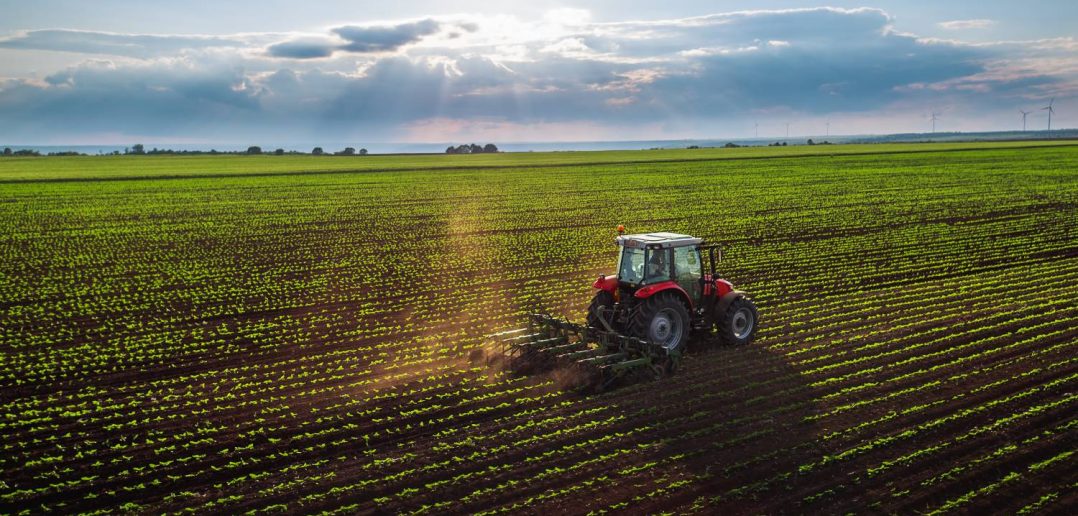More than four decades ago, SAS developed a breakthrough system that helped farmers and researchers better understand and analyze crop yields and livestock production. It was pioneering work that laid a foundation for the emerging field of advanced analytics.
While SAS has continued to grow and serve many other industries, governments and nonprofits, becoming the advanced analytics leader, our passion for improving the agriculture sector has not wavered. In fact, it is stronger than ever.
Like so many, we recognize that one of the grand challenges of our time is still before us: We face a collective and continuing effort to ensure a hungry world has access to safe, affordable, nutritious foods – produced smartly and sustainably with responsible stewardship of our natural resources.
As we join in this year’s World Food Day events, we have pledged to ensure that technology for agriculture (AgTech) can be developed and deployed as a critical piece of helping to advance our food production. Data-driven food production and nutrition promise healthier outcomes for people, for our planet and for our future.
As a founder in advanced analytics and a leader in developing the future of AgTech, SAS is primed to help deliver these solutions.
Growing sustainable solutions to our world’s critical food problems
SAS is intimately familiar with today’s AgTech, because our software was created from one of the earliest modern AgTech projects in 1966. Today, SAS has a dedicated agricultural technology unit and analytic solutions that help customers around the world solve critical food production and sustainability questions. Just like seed, fertilizer and chemicals, agricultural organizations are adding technology services to their list of critical resources to successfully do their jobs. Downstream, the CPG and consumer companies that buy, process and sell food to retailers are asking for more data-driven improvements and sustainability to differentiate their brand.
At the heart of the most effective of these digital tools is agriculture analytics. At SAS, these solutions are embedded with AI to help organizations protect plant and animal health, maximize crop yields and improve sustainability.
In collaboration with partners around the globe, we work with leaders across agriculture, animal health and consumer goods companies on various initiatives including:
- Better monitoring livestock. For livestock growers and buyers, optimizing production processes and improving animal well-being are top priorities. Inconsistent animal sizes and uncertain growth cycles influenced by a variety of health factors, including stress, activity and disease, can be a major operational and ethical pain point. Our livestock monitoring solution, powered by SAS® Analytics for IoT and Microsoft Azure IoT, combines easy-to-deploy sensors and cloud-based predictive analytics to helps these growers and buyers proactively optimize the animal growth cycle, yield and quality with improved health monitoring across all locations.
- Reducing food waste. Wasted food is filling our landfills, creating excess greenhouse gas emissions and wasting billions of dollars; an estimated $161 billion worth of food is discarded by US retailers and consumers each year. Agriculture analytics can help curb this harmful food waste by helping growers forecast production and demand, refine retail delivery and optimize logistics. For example, predictive analytics is helping save sweet potatoes by reducing their waste. With the help of SAS, farmers can adjust management decisions to prevent “ugly” potatoes that don’t meet industry standards and are left to rot instead of making it to grocery stores. Data-driven decision-making helps these farmers instead increase yields of marketable potatoes and reduce unnecessary waste.
- Plant sciences innovation. As a global leader in accelerating plant science innovation and talent development, the NC Plant Sciences Initiative convenes experts from academia, government and industry to drive vital cross-disciplinary research that increases crop yields, creates new varieties, extends growing seasons, enhances sustainability, and produces new and improved technology.SAS is helping the initiative tackle one of its biggest challenges: the ability to translate large amounts of complex data into information that can help researchers and farmers make better, real-time decisions. These insights can then directly help provide a better-planned, more accessible and more plentiful food supply.
Securing a healthier, safer and stronger future of food
Our world’s population is set to exceed 10 billion by 2050. We are leaning in, with many partners, to meet the challenge of feeding more people more nutritious food without harming the planet.
Chr. Hansen is one of many ready to help feed a growing population. The global bioscience company develops natural ingredient solutions for the food, nutritional, pharmaceutical and agricultural industries. The company’s nearly 40,000 microbial strains position it to address some of society’s most pressing challenges, such as adverse climate impact, ensuring greater sustainability from farm to fork. Turning to SAS, Chr. Hansen uses analytics to develop effective, natural probiotics for animal health, enabling farmers to produce high-quality, safe food for global consumers.
SAS is also working with biotechnology innovator Boragen to pursue research that helps better protect crops from harmful diseases. By applying AI and machine learning technologies to Boragen’s data sets, researchers can better predict which of their products, such as protective fungicides, will be most effective. The patent-pending methodology improves time to value greatly, helping field test and develop faster – a critical feature in the dire hunt for sustainable solutions to feed our growing world.
World Food Day 2021 will be hosted by the Food and Agriculture Organization of the United Nations on Oct. 16. On this day – and every day – SAS is committed to turning a new world of agriculture data into valuable intelligence to end hunger, improve nutrition and support a healthier and more sustainable future.


1 Comment
Supper!!!